
Freda Kreier
Science writing intern, Fall 2021
Freda Kreier was an intern at Science News in the fall of 2021. She holds a bachelor’s degree in molecular biology from Colorado College and a master’s in science communication from the University of California, Santa Cruz.

Trustworthy journalism comes at a price.
Scientists and journalists share a core belief in questioning, observing and verifying to reach the truth. Science News reports on crucial research and discovery across science disciplines. We need your financial support to make it happen – every contribution makes a difference.
All Stories by Freda Kreier
-
 Life
LifeChemical signals from fungi tell bark beetles which trees to infest
As fungi break down defensive chemicals in trees, some byproducts act as signals to bark beetle pests, telling them which trees are most vulnerable.
-
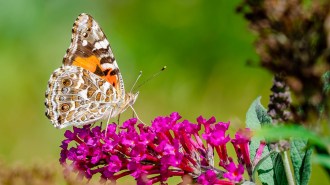 Life
Life76 percent of well-known insects fall outside protected areas
Protected areas can provide safe havens for insects, but many existing ones fall short, a new study finds.
-
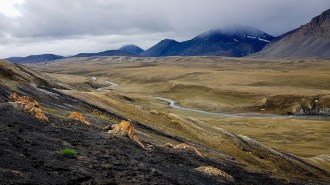 Life
LifeFossils suggest early primates lived in a once-swampy Arctic
Teeth and jawbones found on Ellesmere Island, Canada, suggest that two early primate species migrated there 52 million years ago.
-
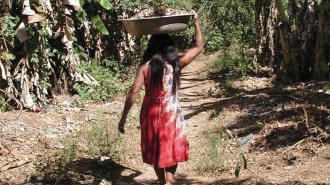 Earth
EarthIndigenous people may have created the Amazon’s ‘dark earth’ on purpose
Modern Amazonians make nutrient-rich soil from ash, food scraps and burns. The soil strongly resembles ancient dark soils found in the region.
-
 Health & Medicine
Health & MedicineBrain scans suggest the pandemic prematurely aged teens’ brains
A small study suggests that the COVID-19 pandemic may have aged teen brains beyond their years.
-
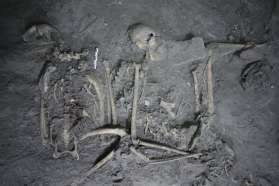 Archaeology
ArchaeologyA spider monkey’s remains tell a story of ancient diplomacy in the Americas
A 1,700-year-old spider monkey skeleton unearthed at Teotihuacan in Mexico was likely a diplomatic gift from the Maya.
-
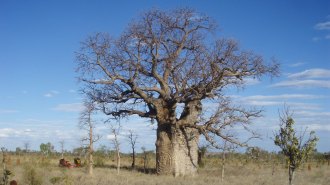 Anthropology
AnthropologyCarvings on Australia’s boab trees reveal a generation’s lost history
Archaeologists and an Aboriginal family are working together to rediscover a First Nations group’s lost connections to the land.
-
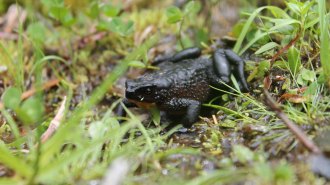 Animals
AnimalsSome harlequin frogs — presumed extinct — have been rediscovered
Colorful harlequin frogs were among the hardest hit amphibians during a fungal pandemic. Some species are now making a comeback.
-
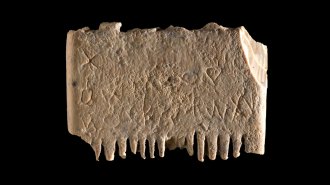 Humans
HumansThis ancient Canaanite comb is engraved with a plea against lice
The Canaanite comb bears the earliest known instance of a complete sentence written in a phonetic alphabet, researchers say.
-
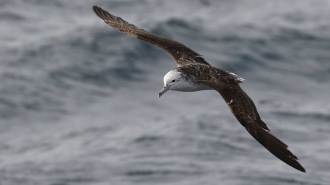 Animals
AnimalsSome seabirds survive typhoons by flying into them
Streaked shearwaters off the coast of Japan soar for hours near the eye of passing cyclones as a strategy to weather the storm.
-
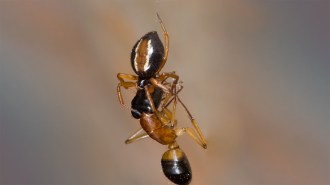 Animals
AnimalsThis spider literally flips for its food
The Australian ant-slayer spider’s acrobatics let it feast on insects twice its size, a new study shows,
-
 Health & Medicine
Health & MedicineThis face mask can sense the presence of an airborne virus
Within minutes of exposure, a sensor in a mask prototype can detect proteins from viruses that cause COVID-19 and other respiratory illnesses.